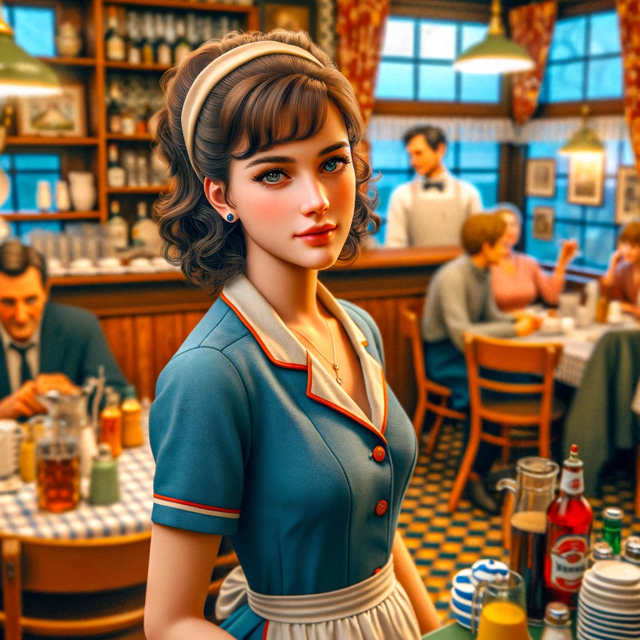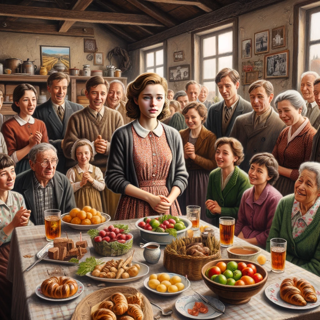January 2024
Dive into the captivating story of Edith, a young woman navigating life and love in post-war Germany.The Electrician and the Seamstress takes you through the bustling streets of 1960s Hamburg to the intimate moments of a family reshaped by history. As Edith's journey unfolds, from the lively Familiengarten restaurant to heartwarming family conversations, we explore themes of love, cultural identity, and the pursuit of dreams in the shadow of a nation's past. Witness Edith's transformative decision as she grapples with a future that could lead her across the ocean to America. This tale is not just about a cross-cultural romance, but a deeper exploration of the human spirit, resilience, and the power of choice in a world still healing from the scars of war. Join us in this poignant narrative where personal stories intertwine with the grand tapestry of history.
Last updated 20 months ago
Will publish on 06/07/2026
After WWI: The Electrician and Seamstress
By Monica Granlove

Epilogue
In 1960, seventeen-year-old Edith epitomized resilience and hard work, accustomed to a life dedicated to supporting her family. Edith was finishing her shift at the Familiengarten, a popular family restaurant and beer garden nestled in Hamburg's St. Pauli district. The Familiengarten, renowned for its traditional German cuisine and inviting outdoor setting, attracted locals, tourists, and nearby American military personnel. Edith's joy was palpable as she anticipated a scenic drive through the countryside with Stanley.
Their date was wonderful and ended with Stan escorting Edith back to the apartment she shared with her parents and sister, Pit. Rolf found his own path, a room and happy to live independently.
Edith's radiant smile spoke volumes, prompting Bruno's playful observation, "It looks like you had a good time today."
Later, after a private walk, Bruno's serious demeanor piqued Edith's curiosity.
With a knowing smile, Bruno addressed Karla, "Muti, it looks like we will have a son-in-law to welcome to the family. Bring the schnapps!"
Days later, Edith shared the news with her family. Stanley had orders to return to America in two months. As Bruno and Karla processed the information, Karla's silent reflection revealed a mix of pride, sorrow, and unspoken maternal concerns. Nevertheless, her brave smile conveyed unwavering support.
Bruno's pivotal question, "Do you love him?" drew a resolute nod from Edith.
Karla's endorsement of Stanley's honorability resonated, prompting Bruno to highlight the opportunity for Edith to escape Germany's challenges and explore life in America.
Edith, grappling with the weight of cultural differences, revealed a crucial detail: "Stanley is Jewish."
Bruno and Karla replied in unison, "So?" Their simultaneous response emphasized a universal truth — love transcends societal boundaries.
Concerns about perceptions and historical baggage lingered, but Karla's wise counsel prevailed.
"We cannot worry about what others think," she declared.
The couple's unconditional encouragement echoed Bruno's heartfelt sentiment about finding a life partner.
Amidst Germany's reconstruction and lingering shame, Stanley and Edith faced hurdles, including extensive background checks. The military's clearance, albeit delayed, allowed them to make their engagement official just in time for their departure to Norfolk.
The eve of departure brought the family together for a heartfelt send-off. Neighbors shared food, well-wishes, and a mix of excitement and sadness filled the air. Edith's journey to America not only marked a new chapter for her but also fulfilled her parents' unrealized dream through their daughter's pursuit of opportunity and happiness across the Atlantic.


